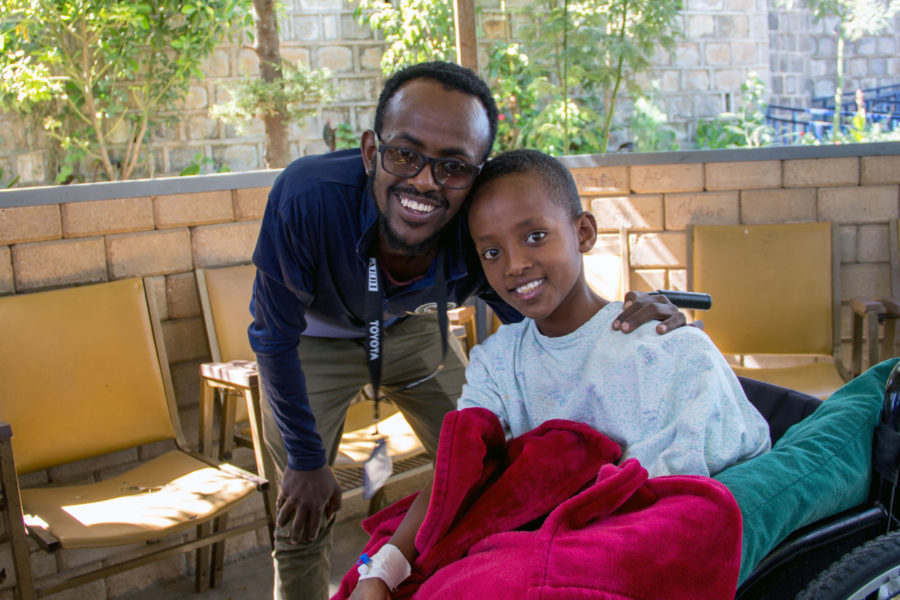Building self-esteem in Ethiopia
Friday, July 12, 2019 at 3:46 pmArticle by Betty Teshome
“When I hear the word CURE, I always think of emotional healing and physical healing,” says Kebede, one of the counsellors at CURE Ethiopia. “And it makes me very happy that I get to be part of it and to spend time with children.”
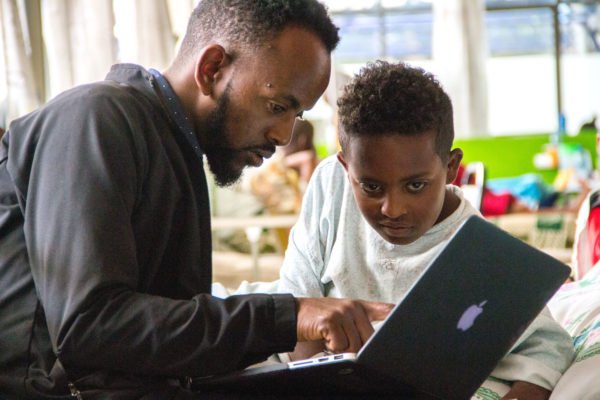
CURE Ethiopia seeks to provide both physical and emotional healing. As part of our counselling team, Kebede is focused on emotional healing. He has been part of the CURE family for almost a year now and spends most of his day playing and teaching children in the ward. Kebede was born and raised here in the capital of Ethiopia, and before joining us full time, he used to come volunteer to play and teach the children.
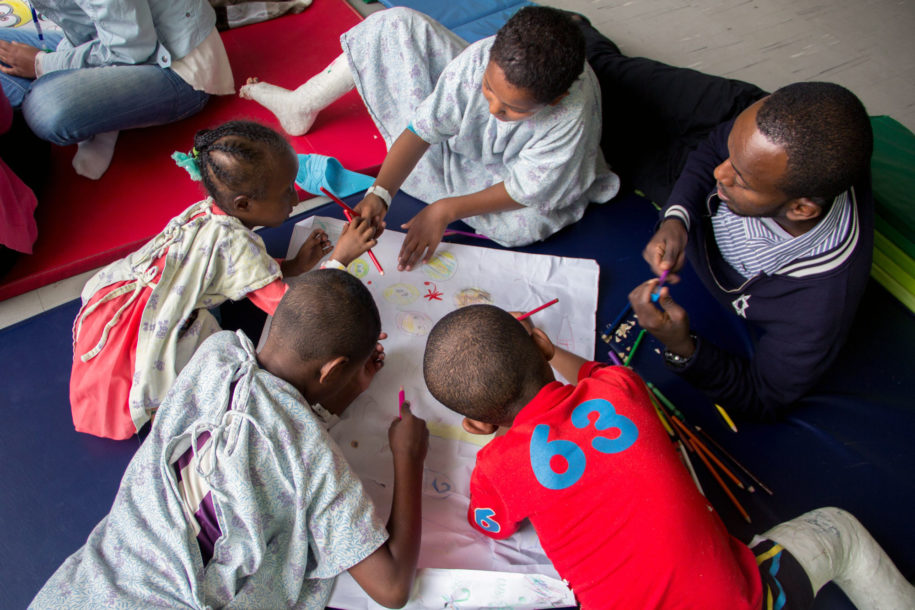
“I studied nursing and took different counselling courses, especially on trauma,” says Kebede. “Also, I learned different exercises to help children with their physical fitness.” Before coming to CURE, Kebede worked in a camp for kids with disabilities. “We had different games, crafts, and different exercises,” he says. “Through those, we helped them to build their self-stem and their self-confidence.” Kebede found it to be a great preparation for his current job: “This experience helps me to easily interact with children at CURE Ethiopia.”
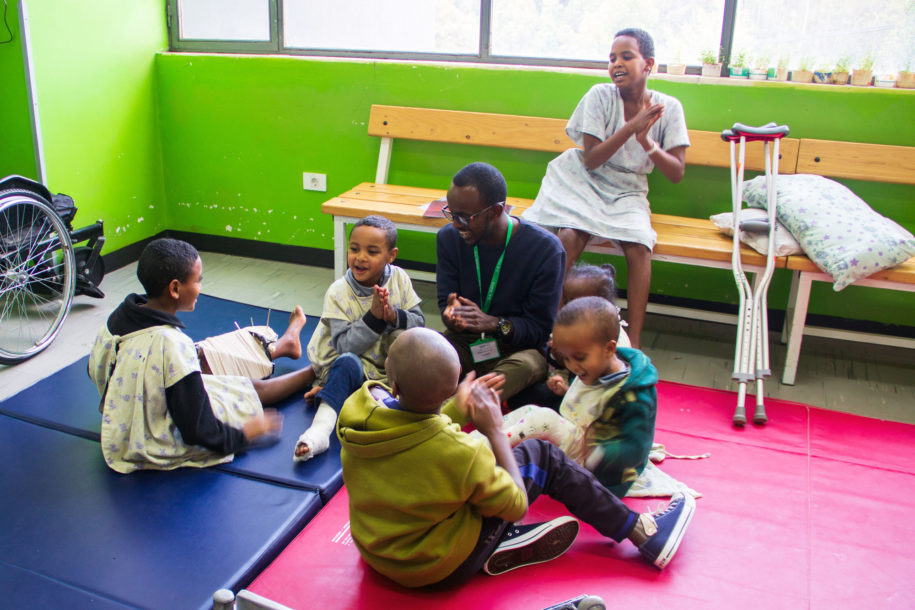
Some of the children that come to CURE think that it is a curse to have a disability; often, their families think the same way, too. “When I hear about this kind of situation,” says Kebede, “it breaks my heart. I do my best to teach the child and the family that the problem or the condition they have is not a punishment from God—it is just a condition that can happen to anybody—and it can be healed, too.”
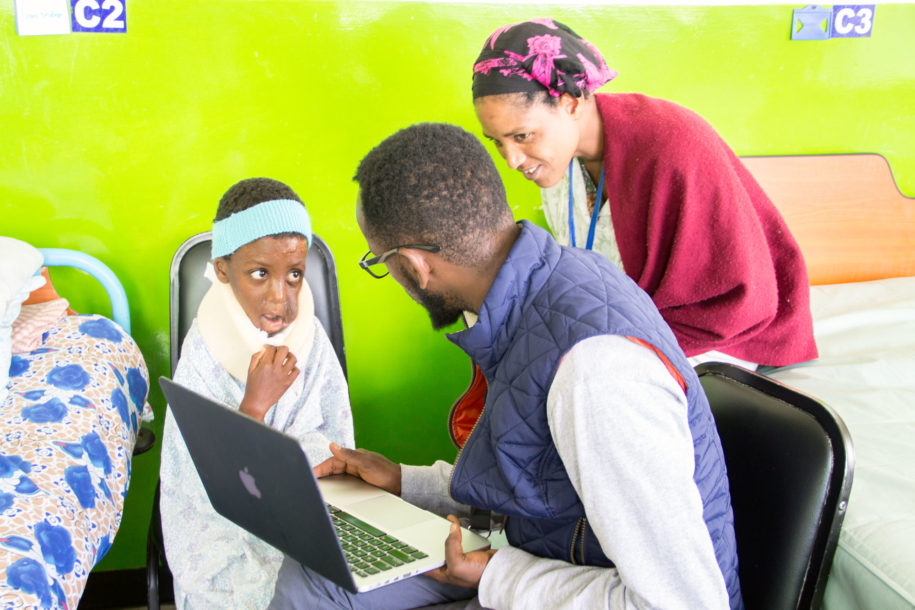
There is a lot about his work at CURE Ethiopia that Kebede likes. “I have a fun job here,” he says. “My favorite thing is teaching the kids and singing a song with them.” Kebede’s work involves lots of play. “We have game time, craft time, movie time—after watching movies I ask them what they gain from the movies so that it could be a teachable moment,” says Kebede. With kids coming from all over Ethiopia, he gets the opportunity to teach them different languages, too, so they can communicate with each other. “I love it when the kids start to play or interact with the other children and forget about their pain and problems,” he says.
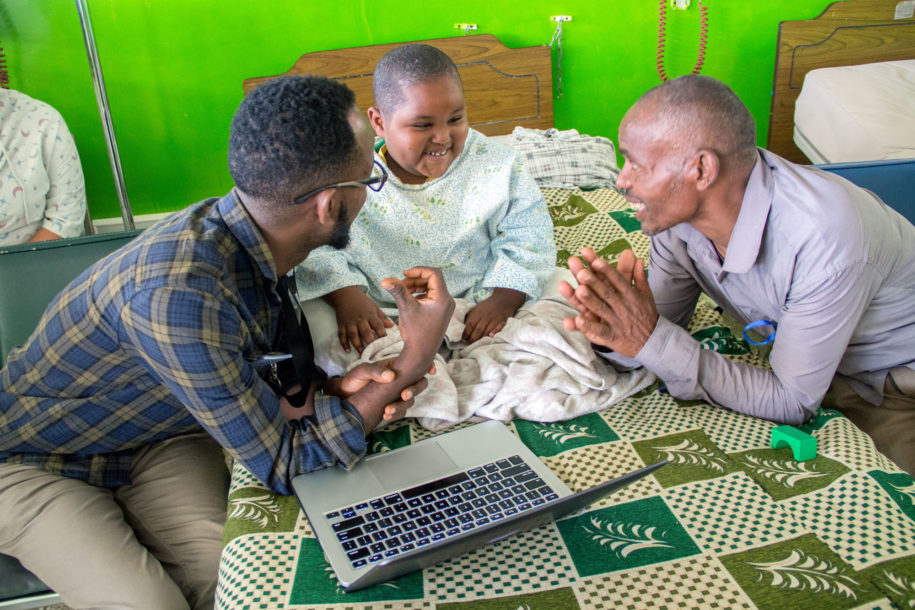
“Besides the fun, I try to help the children in developing their self-stem,” Kebede continues. He wants them to know that they can do whatever they want; he wants to give them hope. Kebede also works to connect the kids to each other, so they can build one another up. “When kids are shy, I give them a good attention and support them to play with the other active children so that they could socialise and learn.”
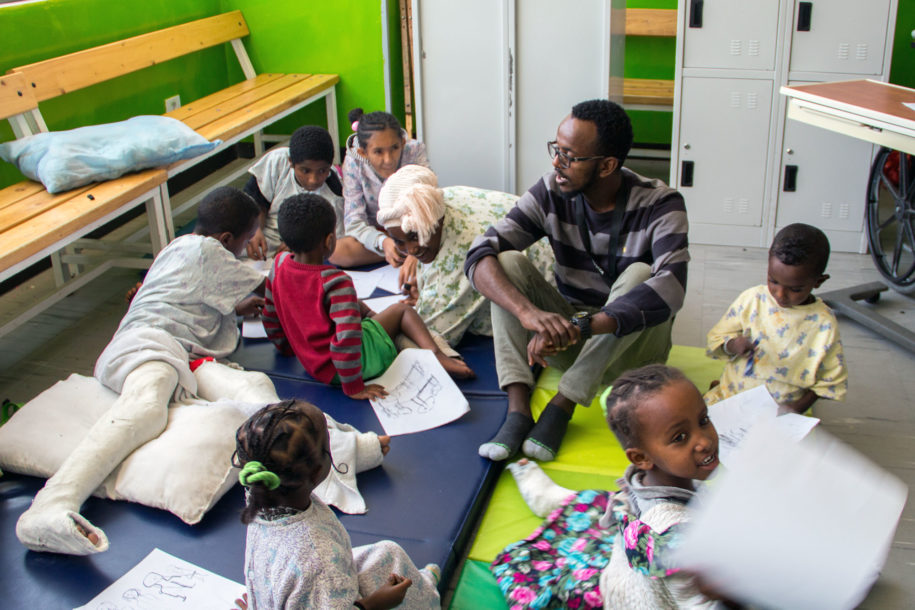
Kebede has dreams for his future—and the future of the kids in his care. He envisions “… a big team here, so that we could follow up with all the children after they leave the hospital … when they go back to society, so that they will not forget what they learned in the hospital.” He wants to continue his work outside the hospital walls. “I want to do a home to home visit and be closer to all the children to help them get out of the problems they are in.”
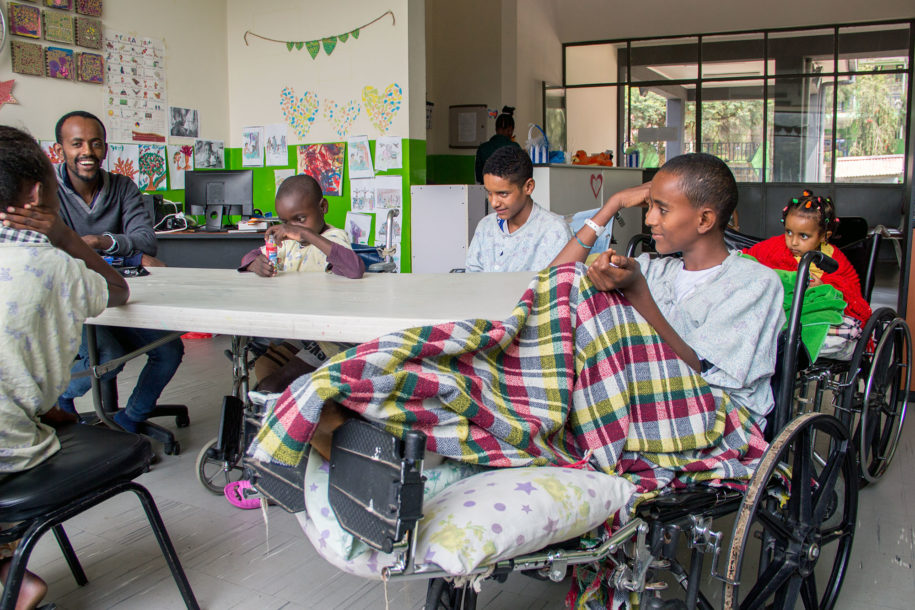
For Kebede, this job has been more than he could have imagined. “I always wanted to work with children, especially kids on the streets, but I never thought I would work with kids who have different disabilities. Now I’m glad that I’m in CURE Ethiopia.”
Related Articles
- Expecting a Blessing: After Years of Waiting, Evance Receives Clubfoot Surgery
- From Pain to Peace Because of You
- BBC News Features CURE Uganda’s Shuntless Solution for Hydrocephalus
- Living Her Dreams: New Milestones, New Beginnings, and Abundant Blessings
- This is Carmen!
- Eda’s Dream: A Young Girl’s Journey to Healing and Her Goal of Becoming a Nurse
